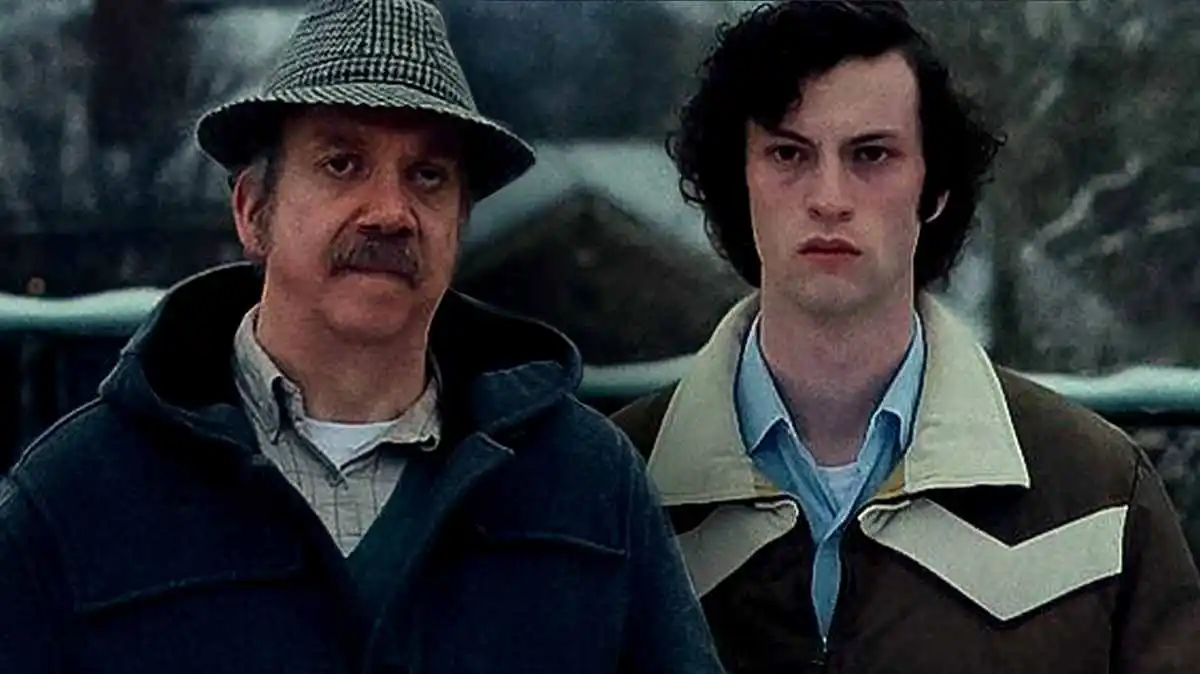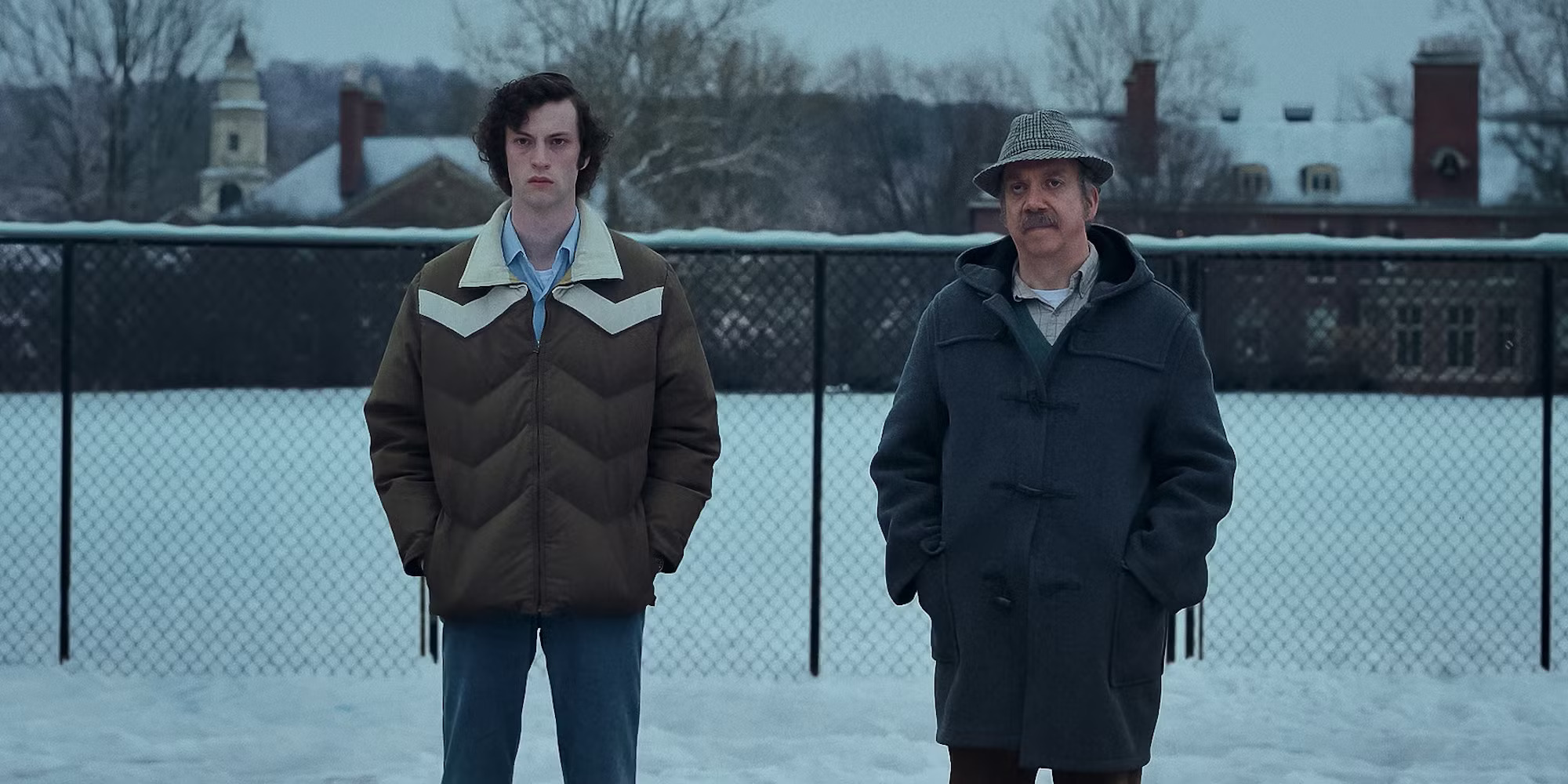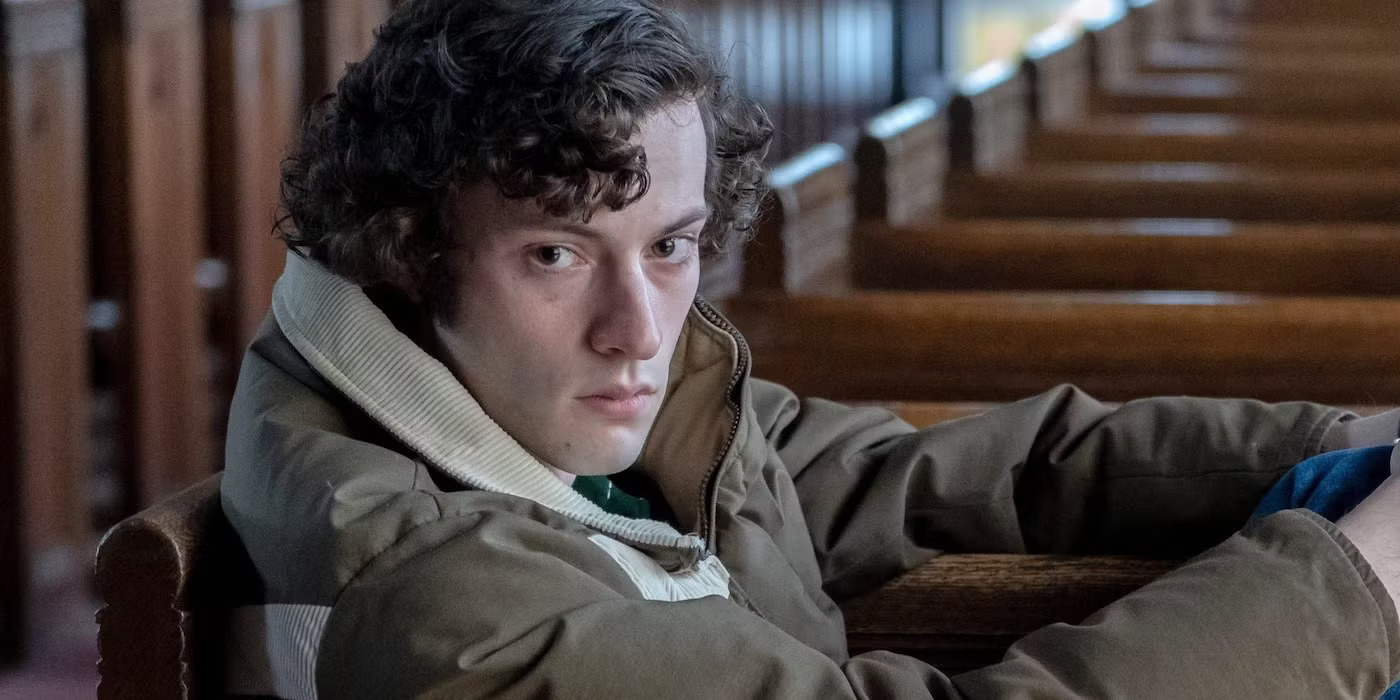The Holdovers, directed by Alexander Payne and written by David Hemingson, is a poignant film set in 1970 that explores the evolving relationship between a strict professor and a troubled student.
With a stellar cast, including Paul Giamatti, Dominic Sessa, and Da’Vine Joy Randolph, the movie delves into themes of privilege, sacrifice, and redemption. At the film’s heart is the dynamic between Paul Hunham and Angus Tully, two individuals who, despite their initial adversarial relationship, undergo profound changes over a Christmas holiday spent together.
Angus Tully, a student at Barton boarding school, expects to spend Christmas on a beach vacation but is left behind by his mother and stepfather. He finds himself stuck with Professor Paul Hunham, a widely disliked teacher known for his harsh grading standards. What begins as a seemingly miserable holiday takes an unexpected turn as Hunham and Tully form an unlikely bond. This bond proves transformative for both characters, setting the stage for the film’s deeply emotional and character-driven narrative.

Sacrifice and Growth Shape Paul Hunham’s Journey of Integrity and Transformation
A key turning point in the film comes when Angus faces the threat of expulsion and being sent to a military academy. Paul Hunham, who initially upholds strict ethical standards, ultimately lies to protect Angus, claiming it was his idea for the boy to visit his father in a sanatorium.
This act of sacrifice costs Hunham his job but spares Angus from a bleak future, potentially even preventing his eventual conscription into the Vietnam War. Hunham’s decision highlights the depth of his transformation and the profound impact of his relationship with Angus.
Throughout the movie, Paul Hunham undergoes significant character growth. Initially, he is an unyielding and rigid professor who refuses to compromise his principles, even when pressured by the school’s headmaster, Dr. Woodrip. However, as he gets to know Angus, he begins to see a reflection of himself in the troubled student. This realization prompts him to bend his own rules, demonstrating that true integrity sometimes means doing what is morally right rather than strictly adhering to regulations.
While the film primarily focuses on Paul and Angus, Mary Lamb, played by Da’Vine Joy Randolph, adds an essential emotional layer to the story. As a grieving mother who lost her son, Curtis, in Vietnam, she represents the harsh realities that students like Angus take for granted. Her presence reminds both Angus and Paul of the true cost of privilege. Through her friendship with Paul and her support for Angus, she serves as a grounding force that helps shape their perspectives on life and their responsibilities to others.
A recurring theme in The Holdovers is the contrast between those who recognize their privilege and those who squander it. When Paul tells Angus that “Barton boys don’t go to Vietnam,” Angus’ retort—“Except for Curtis Lamb”—underscores the disparity between privileged students and those like Curtis, who lacked the means to escape the draft. By the film’s conclusion, both Angus and Paul develop a deeper appreciation for the opportunities they have been given and the responsibility to use them wisely.

Redefining Integrity Through Sacrifice Privilege and Unexpected Bonds in The Holdovers
The film ends with Paul Hunham at a crossroads—both figuratively and literally. Having lost his job at Barton, he leaves campus and takes a symbolic swig of expensive cognac he stole from Dr. Woodrip’s office, only to spit it out. This act serves as a final rejection of the elitist institution that once defined him. By prioritizing morality over tradition, he fully embraces his transformation and paves the way for an uncertain yet liberated future.
A pivotal moment in the film occurs when Angus sneaks away during their Boston trip to visit his father, whom he previously claimed was dead. Paul discovers that Angus’ father is actually institutionalized due to paranoid schizophrenia and early-onset dementia. This revelation explains much of Angus’ rebellious behavior and deepens the emotional complexity of his character. For a brief period, Paul steps in as the father figure Angus never had, offering him the guidance and support he desperately needs.
Beyond its central narrative, The Holdovers is a story about acknowledging one’s privilege and using it to uplift others. Paul’s willingness to sacrifice his career for Angus mirrors the kindness he once received from a mentor who saved him from expulsion at Harvard.
Meanwhile, Angus learns to appreciate the chances he has been given, distinguishing himself from other privileged Barton boys who remain oblivious to their advantages. The film subtly critiques the notion of entitlement while celebrating acts of genuine human connection.
The Holdovers has been widely praised for its heartfelt storytelling and nuanced character development. Critics have lauded its ability to blend humor and melancholy while avoiding clichéd holiday movie tropes. The film’s authenticity and emotional depth have resonated with audiences, making it a standout character-driven drama. Ultimately, The Holdovers serves as a reminder of the power of unexpected friendships and the sacrifices that define true integrity.



